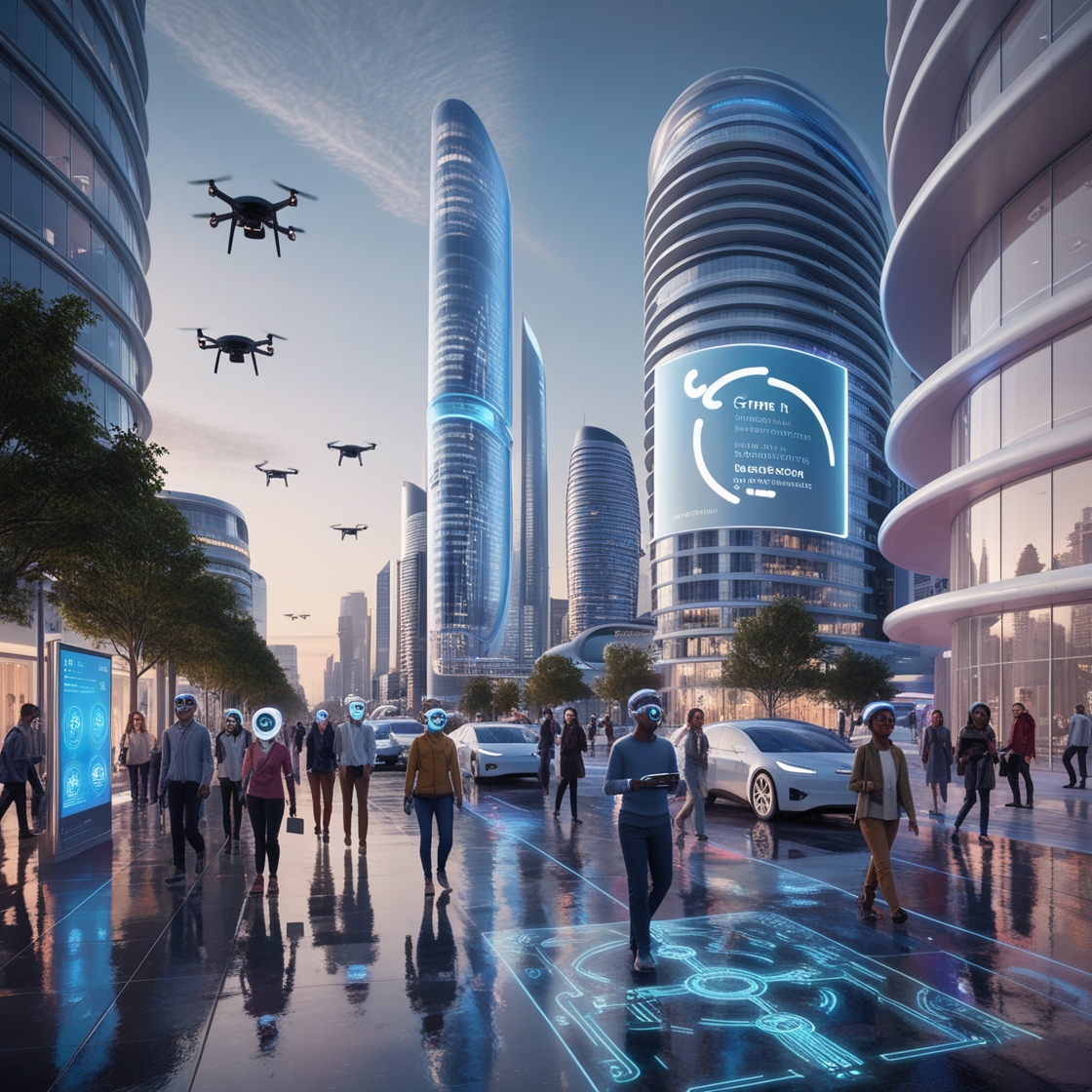Introduction
Urban life is undergoing a major transformation, and at the heart of this change are smart cities. With rapid urbanization, cities need to be more efficient, sustainable, and livable. Smart cities leverage cutting-edge technologies like the Internet of Things (IoT), artificial intelligence (AI), and data analytics to manage resources, improve services, and enhance the overall quality of life. But what exactly defines a smart city, and how is it reshaping the future of urban living?
What Defines a Smart City?
A smart city uses technology to optimize city functions and improve quality of life. It integrates information and communication technology (ICT) into everyday urban infrastructure, from traffic management to waste collection, energy consumption, and beyond.
Technology at the Core
The foundation of a smart city lies in its technological infrastructure. IoT connects everyday objects to the internet, allowing them to communicate and work together efficiently. For instance, smart sensors can monitor traffic flow in real time, optimizing traffic lights to reduce congestion. AI and data analytics play an essential role by processing vast amounts of data collected from various sources to make informed decisions quickly.
Benefits of Smart Cities
Smart cities offer numerous advantages that benefit both the government and citizens. At their core, these cities aim to make urban living more efficient, sustainable, and comfortable.
Sustainability and Environmental Impact
One of the primary goals of smart cities is to reduce environmental impact. They achieve this through smart energy grids that adjust power usage based on demand, leading to more efficient energy consumption. These cities also implement advanced waste management systems that reduce the amount of waste that ends up in landfills, all while improving recycling rates.
Economic Benefits
Smart cities can be engines of economic growth. The technology infrastructure creates new job opportunities in sectors like IT, urban planning, and public safety. Additionally, smart cities are fertile grounds for startups and tech companies, fostering innovation and business opportunities.
Key Technologies Used in Smart Cities
Several key technologies work together to make smart cities a reality, including IoT, AI, 5G, and cloud computing.
Smart Infrastructure
Smart infrastructure is critical to the functioning of a smart city. From bridges to roads and public utilities, technology helps monitor and maintain these systems efficiently. For example, smart grids distribute electricity more effectively, while smart water systems prevent leaks and optimize usage.
Data-Driven Decision Making
Data is the lifeblood of smart cities. Sensors and devices collect massive amounts of information, which city administrators analyze to make decisions. This could include anything from adjusting public transportation routes to deploying emergency services more effectively during a crisis.
Smart Transportation Systems
A key component of smart cities is transportation. Cities are focusing on improving public transit while integrating autonomous vehicles and other tech-driven solutions to reduce traffic congestion.
Traffic Management
Smart traffic lights can adapt to real-time traffic conditions, reducing bottlenecks. By optimizing traffic flow, cities not only reduce commuting times but also lower emissions.
Electric Vehicles and Charging Stations
Smart cities are embracing electric vehicles (EVs) to reduce reliance on fossil fuels. The infrastructure for EVs, including charging stations, is crucial for encouraging adoption.
Smart Energy Management
Renewable energy sources and energy-efficient systems are becoming the norm in smart cities. These cities rely on solar, wind, and other renewable sources to power homes and businesses.
Safety and Security in Smart Cities
Smart cities focus on making urban areas safer through advanced security technologies.
Surveillance Systems
AI-powered surveillance systems can detect unusual behavior and alert authorities in real time, enhancing public safety.
Cybersecurity Challenges
While technology can make cities smarter, it also brings risks. Interconnected systems are vulnerable to cyberattacks, making cybersecurity a critical concern in smart city development.
Challenges in Developing Smart Cities
Despite their potential, smart cities face challenges. High costs, privacy issues, and ensuring accessibility for all residents are ongoing concerns.
Managing Urban Growth
Rapid population growth in urban areas puts a strain on infrastructure. Smart cities must find ways to balance growth while maintaining technological efficiency.
Inclusivity and Accessibility
Smart cities must ensure that all residents, regardless of income or tech savviness, benefit equally from the innovations. Inclusivity remains a critical aspect of sustainable urban development.
Case Studies of Smart Cities
Cities like Singapore, Barcelona, and Dubai are leading the way in implementing smart technology. These cities have introduced initiatives like smart traffic management, sustainable energy use, and AI-driven public services.
The Future of Smart Cities
As technology advances, smart cities will only become more sophisticated. The integration of AI, 5G, and other innovations promises to make cities even more connected, efficient, and sustainable.
Conclusion
Smart cities represent the future of urban living, where technology meets sustainability and efficiency. As cities grow, the need for intelligent urban solutions becomes more pressing. With the right balance of technology and inclusivity, smart cities will shape the future of our world, making urban environments more livable and sustainable for all.
FAQs
- What is a smart city in simple terms?
A smart city uses technology to improve urban services like transportation, energy, and waste management. - How does IoT benefit smart cities?
IoT connects devices and systems, allowing cities to run more efficiently by collecting and analyzing real-time data. - What are some examples of smart cities?
Cities like Singapore, Barcelona, and Dubai are known for their advanced use of smart technology. - What are the main challenges faced by smart cities?
High costs, cybersecurity risks, and ensuring inclusivity are major challenges in smart city development. - How do smart cities ensure data privacy?
Smart cities must implement strong cybersecurity measures and policies to protect citizens’ data.
